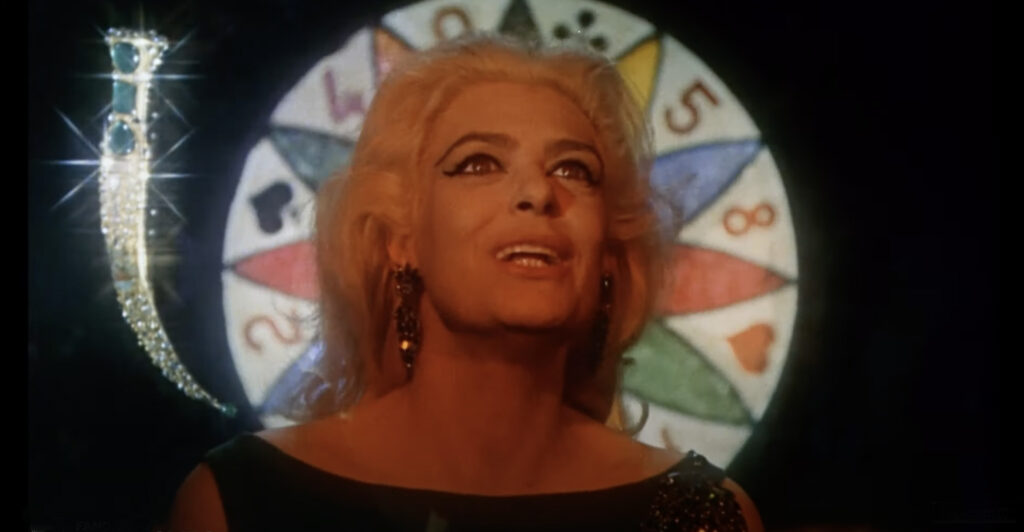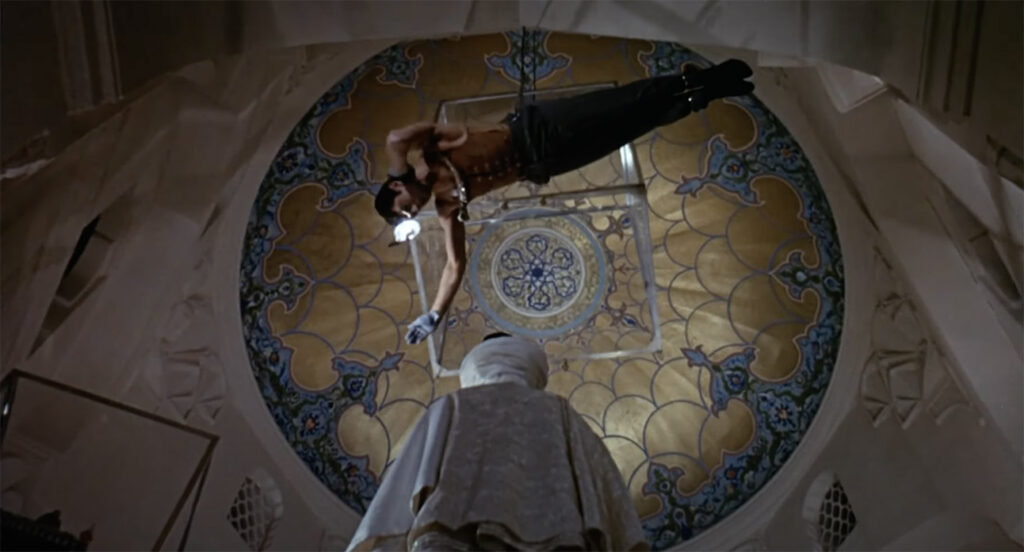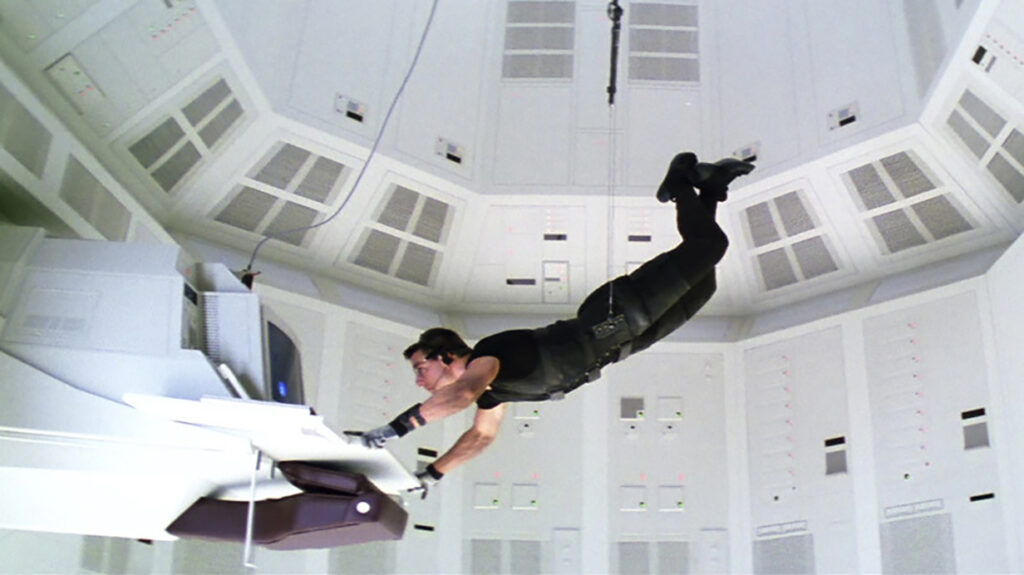Directed by Jules Dassin, written by Monja Danischewsky, based on The Light of Day by Eric Ambler
The bad guys are the good guys. This seems a simple, uncomplicated conceit. But to a 12-year-old boy weaned on Star Wars and Indiana Jones, this idea was revolutionary.
Like Capricorn One and Time After Time, Topkapi was a movie I saw repeatedly on Saturday afternoon TV when the three networks had nothing better to run. But like those other movies, Tokpapi amazed me in ways The A-Team and Fantasy Island could never dream of doing.
Let’s start with the film’s opening. A woman laughs. The aristocratic-sounding laugh is both frightening and inviting. The screen explodes with psychedelic optical effects. And the woman explains herself. She is going to steal a jewel-encrusted dagger from the Topkapi Museum. Why? She wants it. There is no other reason.
What a simple set-up—brilliantly and flamboyantly executed with no need for laborious exposition. Elizabeth Lipp (the lithe Melina Mercouri) is a thief. (“Honest!” she assures the audience, breaking the fourth wall.) and she has devised a way to steal the object of her desire. So she puts into motion an intricate heist plan that has become a template for countless movies—The Italian Job, Ocean’s Eleven, The Sting, Heat, Inception, every Guy Ritchie movie, and, of course, Mission: Impossible.
Mission: Impossible shamelessly pilfers its heist set piece from Topkapi wholesale, from the pressure-actuated floor to the acrobatic wire-assisted entry from above. The Tom Cruise movie even lifts Topkapi’s almost soundless sound design, the better to raise the tension.
And why is there tension? Because this band of criminals have our sympathy. There is no pretense of re-patriating the dagger or selling it to fund a worthy cause. Lipp and her confederates (played winningly by Maximillian Schell, Peter Ustinov, Robert Morley, and others) are stealing for the thrill of it. Ustinov plays an innocent patsy whom Lipp and also the Turkish police recruit, and we wonder whose side he will ultimately endorse. Is it any wonder he throws his lot in with the thieves? They are so smooth, so skilled. The cops, with their dark glasses and black suits—who could possibly trust them?
Topkapi is Jules Dassin near the end of a brilliant but turbulent career. An American who made the noir classics The Naked City and Night and the City, he fell under the HUAC blacklist and fled to Europe. There he made the original heist film, Rififi, a hard-edged, gritty, black-and-white French film. It’s a brilliant movie, but I prefer the sunny Mediterranean Technicolor of Topkapi. It’s full of personality, humor, and Mercouri’s mildly psychotic Lipp. At one point, Ustinov’s Simpson theorizes she’s a nymphomaniac. He’s not wrong, and a scene at a mass Turkish wrestling match, where half-naked men oil themselves up for combat, provides the most entertaining reaction shots you’ll ever see.
The world of cinema owes a debt to Topkapi. And you owe it to yourself to see it. As for me, I often struggle with exposition and character motivation. Topkapi says: “Why bother?” A woman wants shiny things. A thief steals. What more motive do you need? Dispense with these things and get on with the story. Honest.



